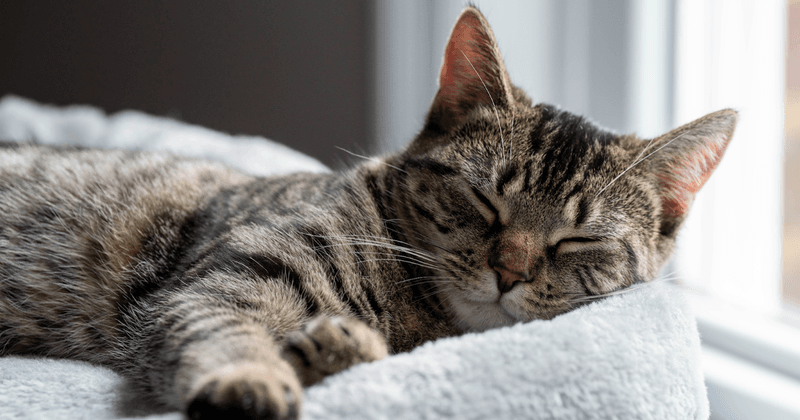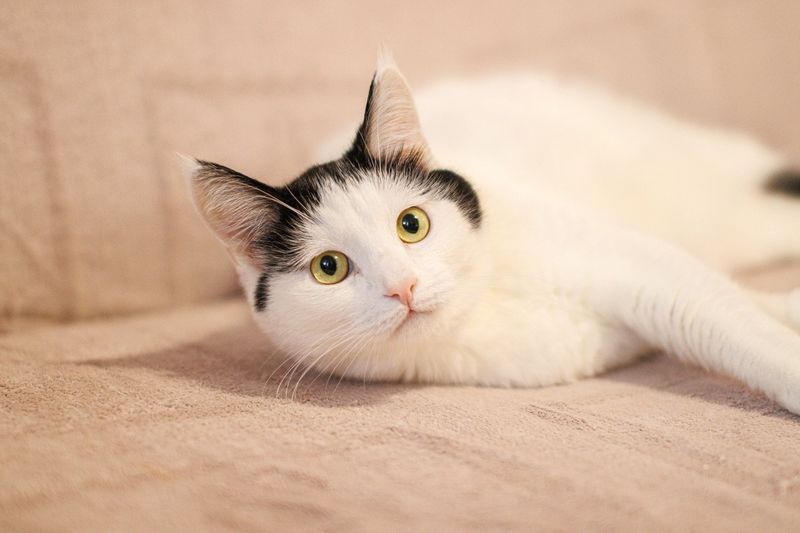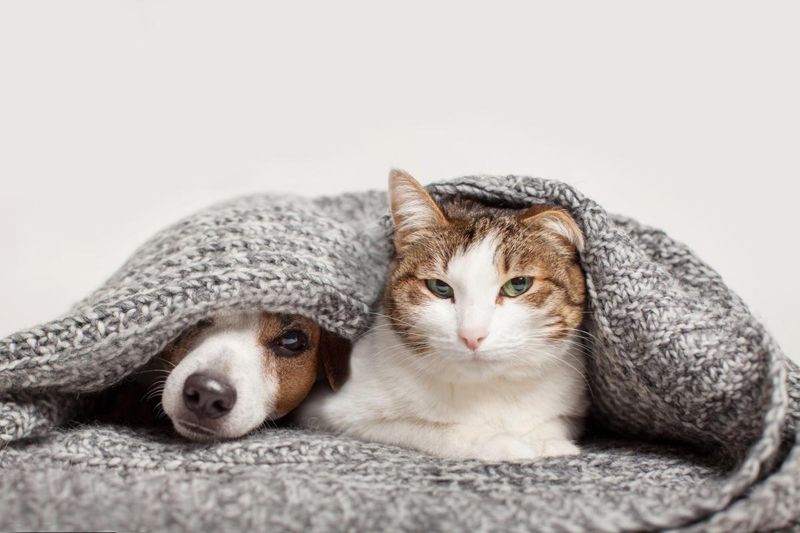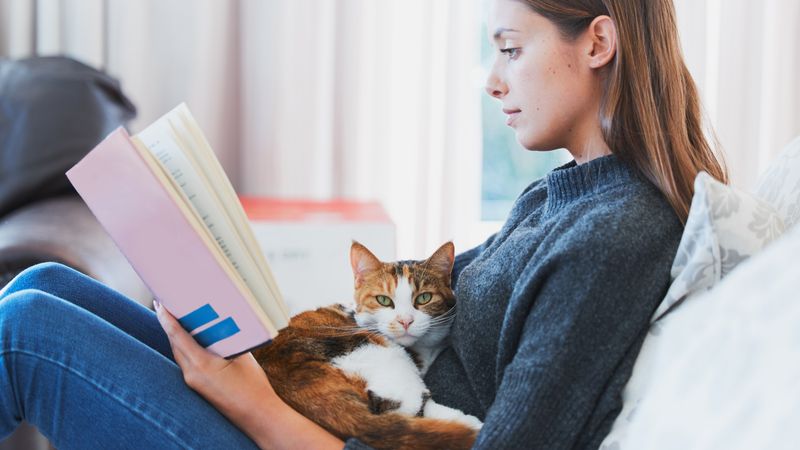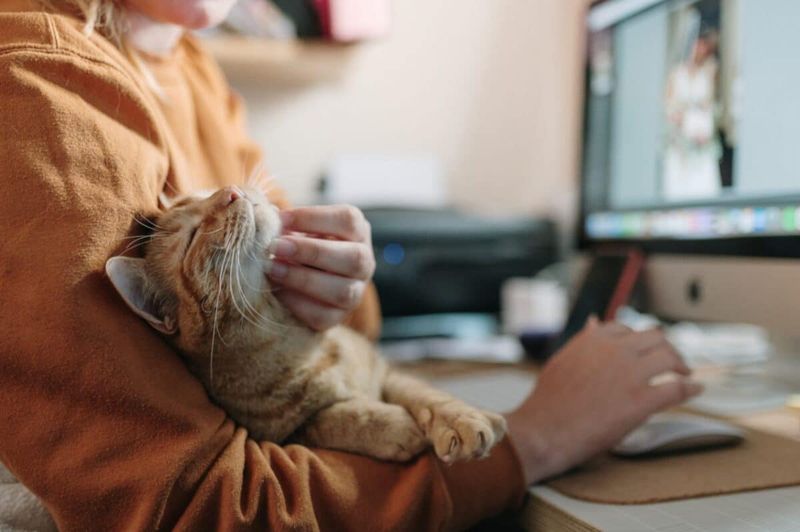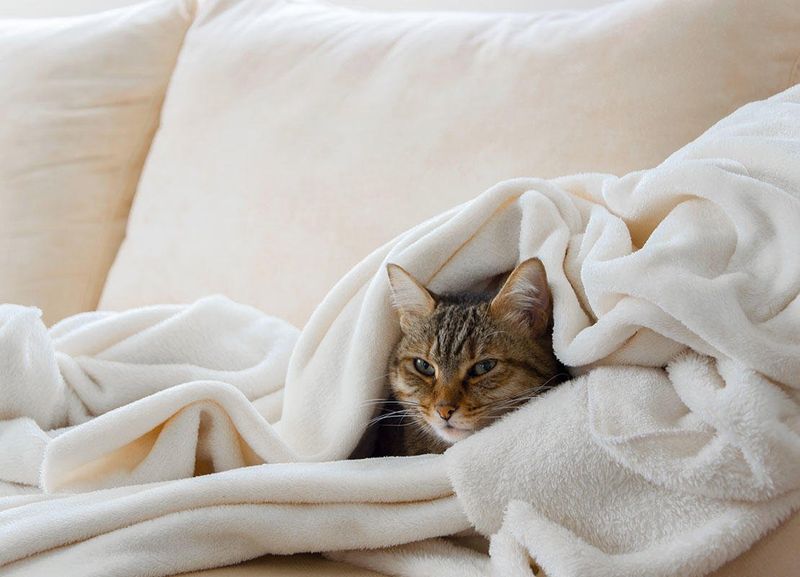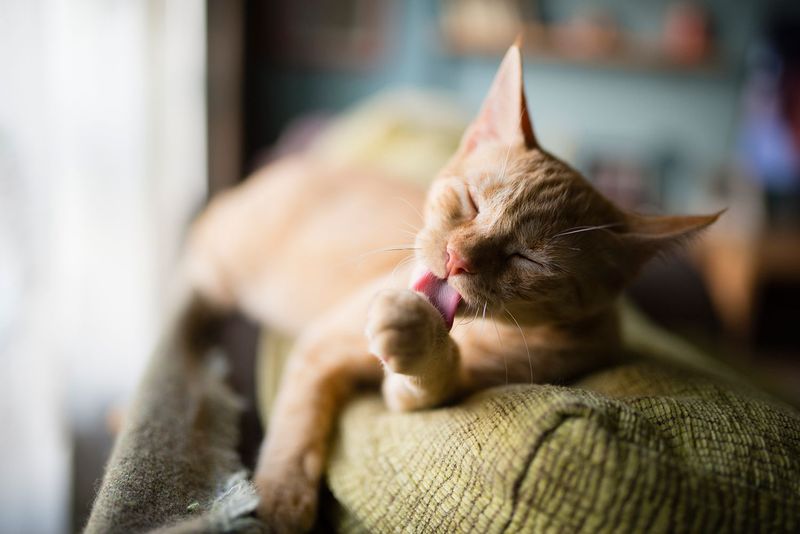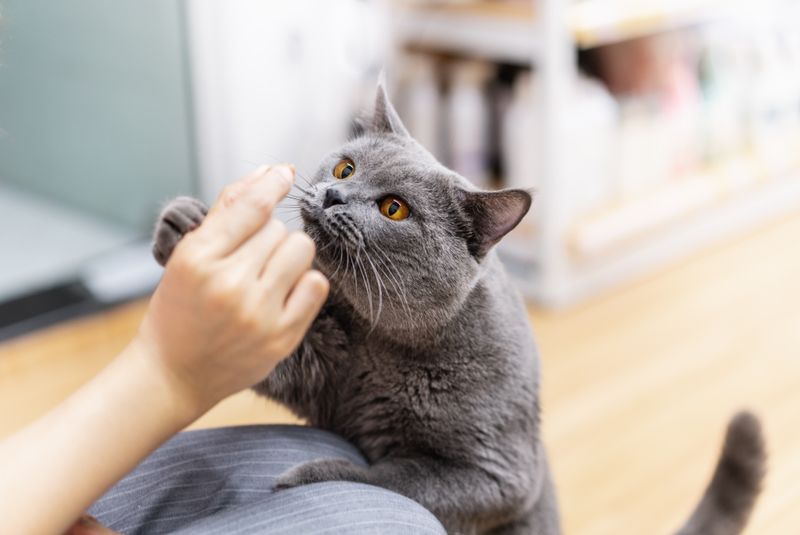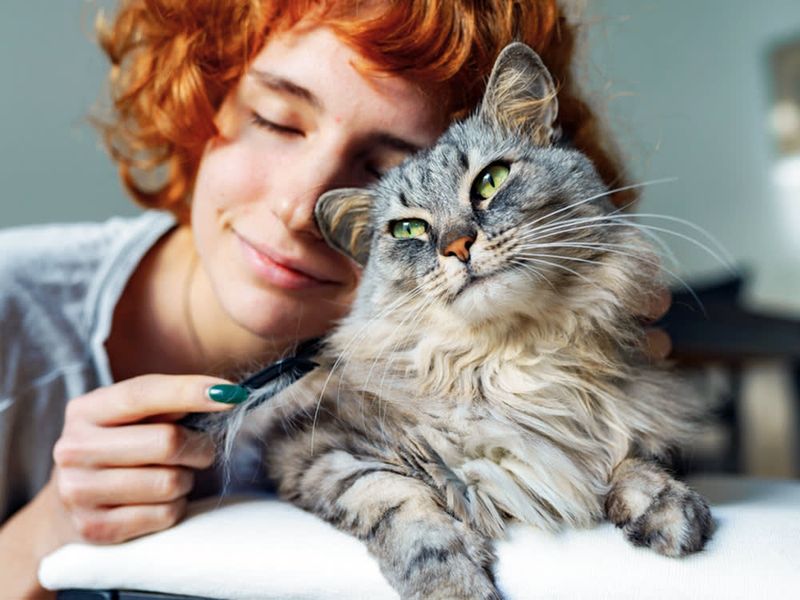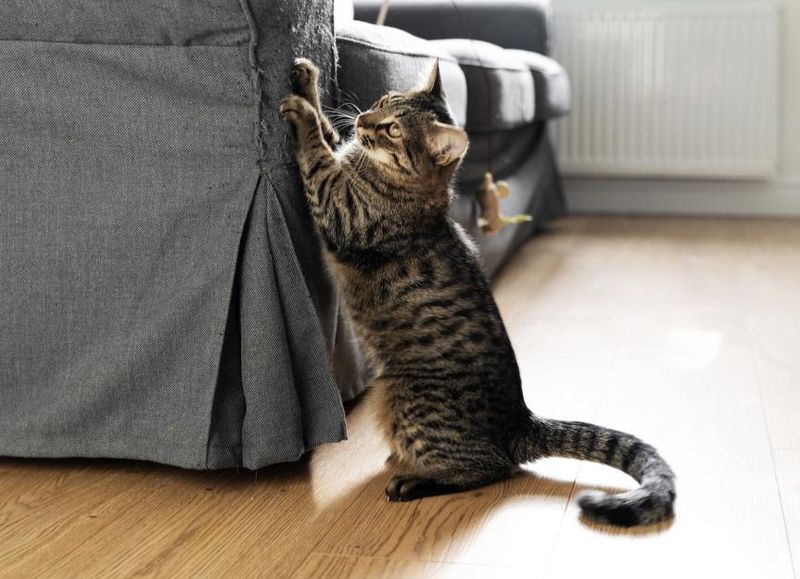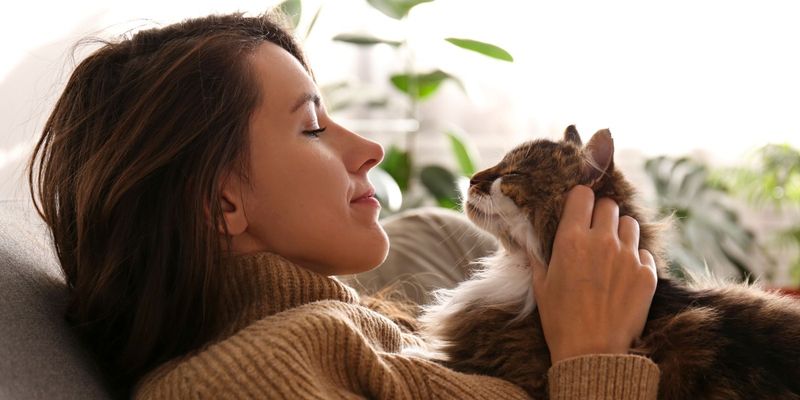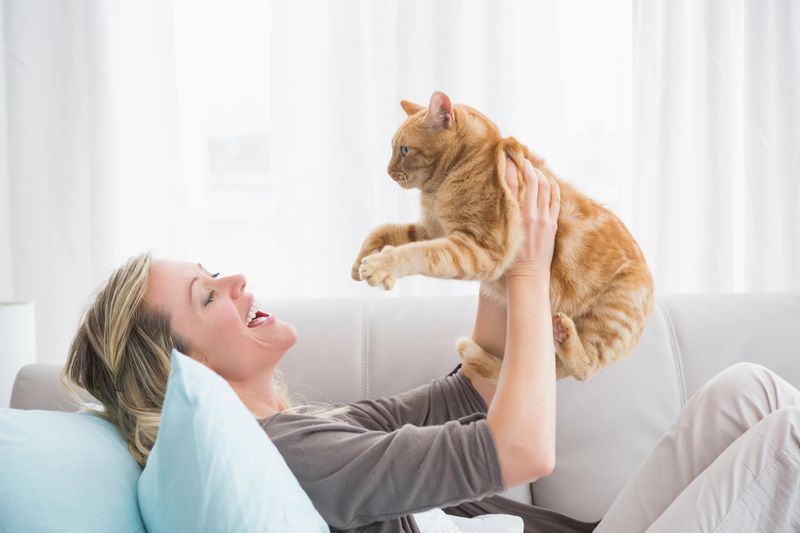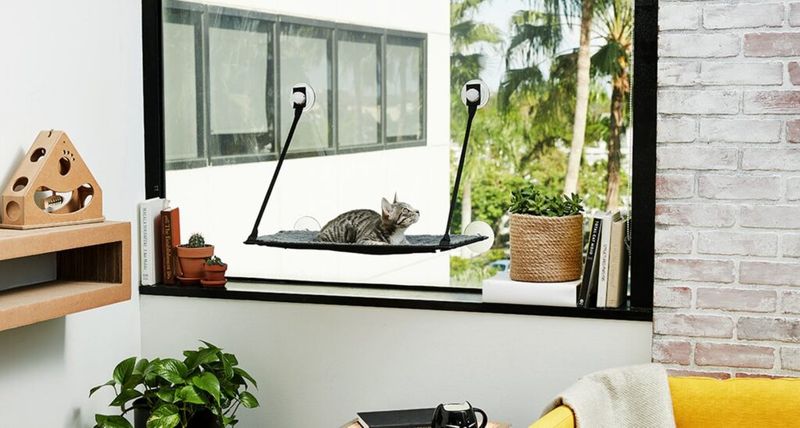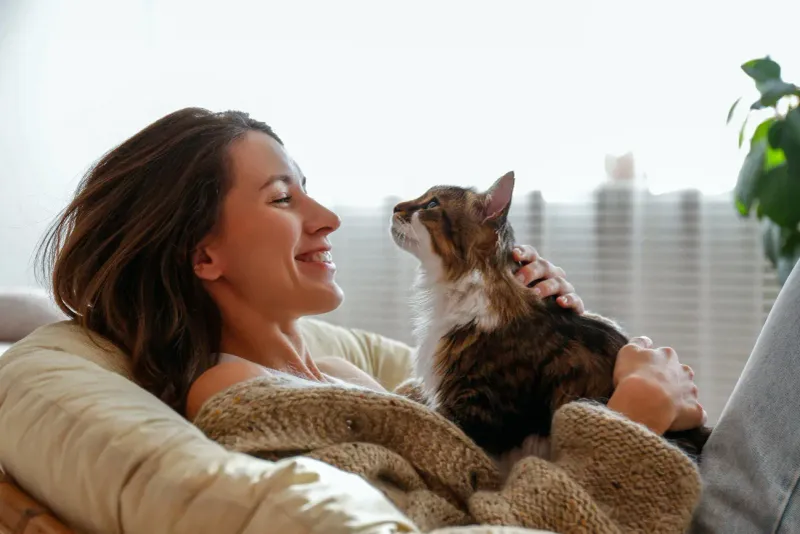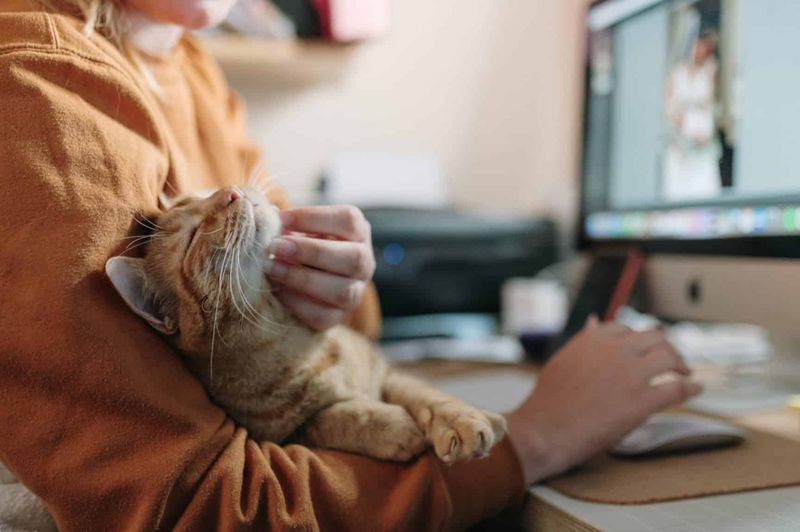📖 Table of Content:
- 1. Lower Maintenance Lifestyle
- 2. Personal Space Respect
- 3. Quieter Emotional Environment
- 4. Less Public Interaction Pressure
- 5. Less Physical Strength Required
- 6. No Guilt-Inducing Walks Required
- 7. Self-Cleaning Companions
- 8. Reduced Financial Anxiety
- 9. Lower Risk of Injury
- 10. Less Destructive Behaviors
- 11. Emotional Perception Without Judgment
- 12. No Training Disappointment
- 13. Less Neighborhood Tension
- 14. Lower Susceptibility to Emotional Manipulation
- 15. Reduced Travel Anxiety
Choosing a pet companion impacts your emotional well-being in ways you might not expect. Cats offer unique advantages that make them emotionally safer companions for many people. While dogs certainly have their lovable qualities, our feline friends provide specific benefits that can protect your emotional health and create a more balanced relationship.
1. Lower Maintenance Lifestyle
Cats handle alone time like champions. Unlike dogs who might develop separation anxiety when you leave for work, cats typically snooze the day away without emotional distress. This independence means less guilt when your schedule gets hectic. You won’t face those sad puppy eyes or destructive behaviors that come from a dog feeling abandoned. The emotional relief of knowing your pet is content while you’re gone creates a healthier relationship. Many cat owners report feeling less stressed about their daily routines knowing their feline friend isn’t counting the minutes until their return.
2. Personal Space Respect
Feline companions naturally understand boundaries without training. They approach for attention when it feels right for both of you, creating a relationship built on mutual respect rather than constant demands. This natural spacing gives you emotional breathing room. After a draining day, a cat won’t insist on immediate attention or playtime when you’re emotionally depleted. The psychological benefit of this space-respecting relationship can’t be overstated. Mental health professionals often note how important boundary recognition is in healthy relationships – something cats instinctively provide that many dogs must be extensively trained to understand.
3. Quieter Emotional Environment
The absence of barking creates a dramatically calmer home atmosphere. While dogs vocally react to delivery people, neighborhood noises, or passing squirrels, cats typically remain quiet observers. This peaceful soundscape reduces stress hormones in your body. Studies show that constant noise exposure, even from a beloved pet, can trigger your fight-or-flight response and raise cortisol levels over time. For people with noise sensitivity, anxiety disorders, or those who work from home, a cat’s quiet nature prevents the emotional roller coaster that comes with sudden loud barking. Your nervous system stays regulated instead of constantly jumping into high alert.
4. Less Public Interaction Pressure
Cat ownership doesn’t force socialization with strangers. Unlike dog walking, which inevitably leads to unexpected conversations and sometimes uncomfortable social interactions, cats stay home. For introverts or those with social anxiety, this difference is enormous. No need to prepare mentally for random chats or explain why your pet behaves certain ways to curious passersby. The emotional safety of avoiding unwanted social pressure matters greatly. Many cat owners appreciate controlling when and how they interact with others, rather than having their pet create social obligations. This control over social boundaries creates significant emotional comfort for those who find frequent interaction draining.
5. Less Physical Strength Required
Handling a cat rarely requires brute strength. Even during veterinary visits or medication time, managing a resistant cat is physically possible for most people, unlike controlling a large struggling dog. This physical management difference creates emotional security. Seniors, people with disabilities, or those with limited strength don’t experience the fear of being overpowered by their own pet. The confidence of knowing you can always physically manage your companion animal builds trust. Many people who’ve been pulled down by excited dogs or struggled to control larger breeds find profound relief in the manageable size and strength of cats, allowing them to relax into the relationship without physical anxiety.
6. No Guilt-Inducing Walks Required
Freedom from mandatory outdoor excursions regardless of weather or health brings tremendous emotional relief. Cat owners never face the guilt of skipping walks during illness, extreme weather, or exhaustion. This flexibility particularly benefits those with chronic pain, fluctuating health conditions, or demanding work schedules. Your cat’s bathroom needs are neatly contained in a litter box, removing the time-sensitive pressure that dog owners face. The emotional burden of feeling like a “bad pet parent” when unable to maintain walking routines simply doesn’t exist with cats. This guilt-free relationship allows for genuine rest when needed without compromising your pet’s basic needs or comfort.
7. Self-Cleaning Companions
Cats meticulously groom themselves for hours daily, removing the emotional labor of frequent bathing sessions. This self-maintenance means no wrestling a reluctant animal into a tub or scheduling regular grooming appointments. Beyond the practical benefits, this self-sufficiency creates a different relationship dynamic. You’re not placed in the caretaker role as frequently, allowing a more equal partnership to develop. The stress reduction from eliminating bath-time struggles benefits both parties. Many cats maintain pleasant scents naturally, while dogs often develop that distinctive “dog smell” requiring human intervention. This cleanliness independence removes a potential source of conflict and resentment from your relationship.
8. Reduced Financial Anxiety
Cat ownership typically costs significantly less than dog ownership. Lower food bills, fewer required accessories, and generally lower veterinary costs create less financial pressure in your relationship. This economic difference matters emotionally. When tight budgets arise, cat owners rarely face difficult choices about affording basic pet care that might strain the human-animal bond. The peace of mind from this financial cushion shouldn’t be underestimated. Many cat owners report feeling more secure knowing emergency vet visits or specialty foods won’t devastate their finances. This reduced financial stress allows for a relationship based on companionship rather than constant resource calculations.
9. Lower Risk of Injury
Cats rarely cause serious physical injuries to their owners. Unlike larger dogs who might accidentally knock someone down or pull too hard on leashes causing falls, cats generally lack the size and strength to create physical harm. This safety aspect provides emotional security, especially for vulnerable populations. Children, elderly individuals, and people with balance issues can interact with cats without the underlying fear of being hurt. The absence of physical risk creates a foundation of trust. Without worrying about potential injuries, you can fully relax around your pet rather than maintaining constant vigilance. This security allows deeper bonding without the emotional barrier that physical caution sometimes creates.
10. Less Destructive Behaviors
Feline destruction typically happens on a smaller scale. While a cat might scratch furniture, this pales compared to a dog chewing through walls, doors, or expensive electronics when bored or anxious. The emotional impact of coming home to minor damage versus major destruction cannot be overstated. Cat owners rarely experience the crushing disappointment and financial strain of significant household damage. This behavior difference creates a more trusting relationship. You can leave cats unsupervised without the nagging worry that your belongings are being destroyed, allowing you to focus on enjoying their company rather than constantly managing their behavior or feeling resentment over ruined possessions.
11. Emotional Perception Without Judgment
Cats offer comfort without the intense emotional mirroring dogs sometimes provide. When you’re anxious or upset, dogs often absorb and amplify those feelings, sometimes making your emotional state worse. Feline companions recognize your emotions but maintain their own calm demeanor. This balanced response can actually help regulate your feelings rather than intensifying them. Mental health professionals note this difference as significant for emotional wellbeing. While dogs might become visibly distressed when you cry, potentially creating guilt about upsetting your pet, cats offer gentle presence without making you responsible for their emotional response to your feelings.
12. No Training Disappointment
Cat ownership comes with realistic behavioral expectations. Unlike dogs, who require extensive training to meet social standards, cats are accepted largely as they naturally behave. This acceptance eliminates the emotional roller coaster of training successes and failures. Dog owners often experience frustration, disappointment, and even shame when training doesn’t progress as expected or when their dog behaves poorly in public. The freedom from these expectations creates a more accepting relationship. You’re not constantly evaluating your cat’s behavior against some ideal standard or feeling like a failure when they don’t perform tricks or follow commands perfectly. This unconditional acceptance fosters genuine appreciation for who your pet naturally is.
13. Less Neighborhood Tension
Cat ownership rarely creates conflict with neighbors. Without barking that disturbs sleep or peace, boundary disputes over fencing, or waste management issues in shared spaces, cats allow for more harmonious community living. This social ease provides significant emotional relief. The stress of managing neighbor complaints or feeling judged about your pet’s behavior simply doesn’t factor into most cat owners’ lives. Community relationships remain positive without the strain pet issues can create. Many apartment dwellers particularly value this aspect of cat companionship, as they can enjoy pet ownership without the anxiety of disturbing others or facing potential housing restrictions that often target dog owners specifically.
14. Lower Susceptibility to Emotional Manipulation
Cats’ independent nature creates healthier emotional boundaries. Unlike dogs bred specifically to form intense attachments and please humans at all costs, cats maintain their autonomy while still offering companionship. This balanced relationship prevents the guilt-driven decision-making that often affects dog owners. When a cat chooses to spend time with you, it feels like a genuine connection rather than an obligation or dependency. Psychologists note that this dynamic can actually model healthier human relationships. Learning to respect another being’s independence while enjoying connection when freely given teaches valuable relationship skills that transfer to human interactions, fostering emotional intelligence rather than codependency.
15. Reduced Travel Anxiety
Temporary separations cause less stress with feline companions. Cats can be left with adequate food, water, and a clean litter box for a weekend with minimal disruption to their routine or emotional wellbeing. This independence allows for spontaneity and freedom in your life. Weekend trips or overnight stays don’t require extensive planning, expensive boarding, or imposing on friends and family for pet sitting. The emotional liberation of maintaining your social life without pet-related restrictions matters tremendously. Many cat owners report better work-life balance and stronger human relationships because they can travel without the constant worry about their pet’s emotional state or care arrangements that dog owners often experience.

